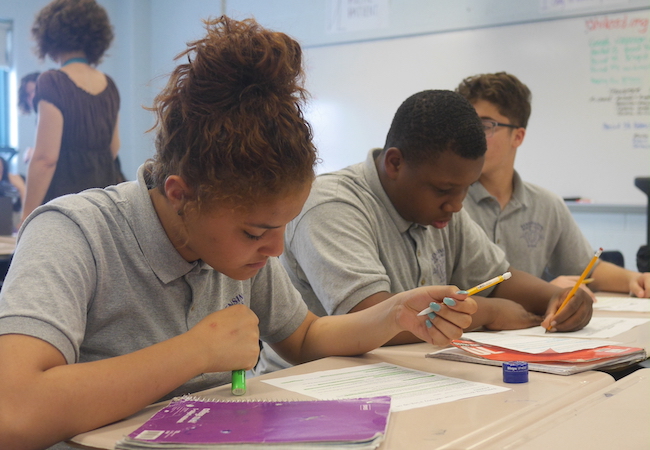Penn GSE News Archive

Teachers are leaving the profession due to COVID-19 stresses
Richard Ingersoll comments on teachers leaving the profession if the economy continues to improve and they continue to feel stress. “Typically we find that employees across the economy tend to quit less during economic downtimes,” he said. “There’s a lot of indications that in fact, during the pandemic, teacher turnover and teacher retirements may have even gone down.”
New study shows Latinx students attend class more if the teacher is Latinx
In new research published in Educational Evaluation and Policy Analysis, Professor Michael Gottfried, along with J. Jacob Kirksey (Texas Tech University) and Tina L. Fletcher (Penn GSE), concluded that Latinx students with Latinx teachers attend school more, a relationship that does not exist for white students.
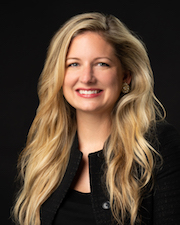
Thousands of kindergartners didn’t show up for school last year. Here’s what that means for the school year to come.
Brooks Bowden comments on the amount of work that needs to be done before and after school reopen for the fall. “We’ve all got a lot of work to do,” she said. Bowden thinks “educator coaches, tutoring services, and supports for families can go a long way.”
Hand in hand: Black women in pursuit of the Ph.D.
Trina and Tina Fletcher are 35 year old twins, originally from a rural town in Arkansas with just 850 people. They are also highly successful African American women who, from an early age, had their eyes set on earning a Ph.D. and changing the world around them. Trina is currently an assistant professor of Engineering and Computing Education at Florida International University, and Tina is a Ph.D. candidate in educational policy at the University of Pennsylvania.
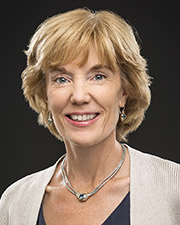
For adults returning to college, ‘free’ tuition isn’t enough
Laura Perna spoke about accommodating the needs of adult students. “There is a complexity to adult learners,” she said. “It is really recognizing, ‘What are the circumstances of individual people’s lives?’ If someone is to enroll in college, how do you make it possible for them to attend?”


Afro-Cubans on the brink
Amalia Daché spoke with Politico about the uprisings in Cuba with respect to Afro-Cubans who are disproportionately affected by the hardships in Cuba and are taking the lead in the protests. “This is one of the reasons I’ve been so active, related to my research and my own identity as an Afro-Cuban, is that Afro-Cubans have been leading this from the beginning.”

Don’t Let Cuba’s Protest Momentum Evaporate
Amalia Daché writes, “The first thing the United States needs to do in crafting policy solutions is listen to the brave people risking their lives and freedom to lead these protests, especially Afro-Cubans who have lived at the bottom of the regime’s racist and classist system.”
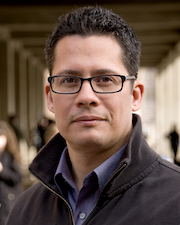
Court order dashes hopes of teenage immigrant DACA applicants
The decison 'curves, if not cuts off, possibilities' for affected teenagers, Roberto Gonzales said.
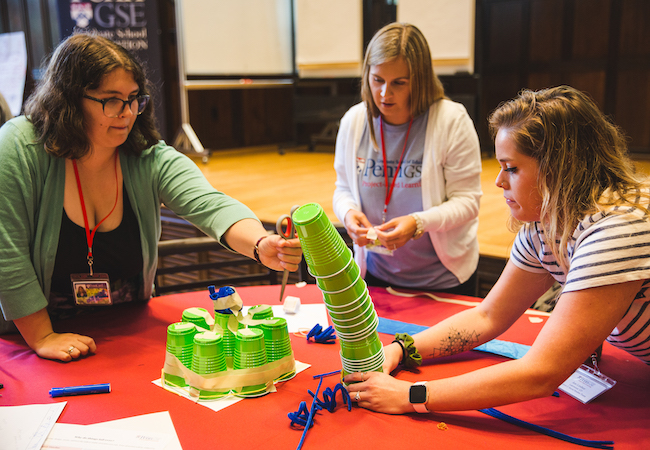

Afro-Cubans come out in droves to protest government
Amalia Daché spoke about the history of racial disparities and injustices in Cuba. “When we're thinking about global solidarity with Black people, especially right now, we need all hands on deck,” she said.

A Word: Cuba’s Color Revolution
Amalia Daché joins podcast host Jason Johnson to talk about the uprising in Cuba, and the myths and realities of racial equity in Cuba.

Fear of a Black Cuban planet
Amalia Daché was interviewed about Cuba’s recent uprisings and its long history of Black resistance. In the 1960s, the Communist government said it would eradicate racism. “It’s counterrevolutionary to talk about Black history in Cuba, to engage Black history,” she said.

